Richard Armitage, American diplomat and public servant Richard Lee Armitage was born April 26, 1945, and died April 13, 2025. After graduating from the Naval Academy, Armitage became a US Navy captain. Armitage was a Navy officer who advised on riverine warfare during three combat deployments in Vietnam. He worked for various Republican administrations after his military service. He was an aide to Senator Bob Dole before working in the State and Defense Departments.
Under Reagan, Armitage was deputy assistant secretary of defense for East Asia and Pacific affairs from 1981 to 1983. He served as international security assistant secretary of defense from 1983 until 1989.
His diplomatic roles in the Bush administration included special negotiator for the Philippines Military Bases Agreement, Middle East water mediator, special emissary to King Hussein of Jordan during the Gulf War, and director of U.S. aid to post-Soviet states. After private sector experience, he joined the Bush administration in March 2001 and served as deputy secretary of state until February 2005.
Richard Armitage Obituary : His Biography and Legal Legacy
The Plame incident tarnished Armitage’s service as Colin Powell’s Secretary of State. In 2006, Armitage claimed he mistakenly revealed that Valerie Plame Wilson was a CIA agent to Robert Novak, who had written about it in July 2003. Armitage apologized and said the disclosure was inadvertent.
Richard Armitage Life before and during military service
He was born in Wellesley, Massachusetts, to Ruth H. Armitage. Leo Holmes Armitage joined. He graduated from Atlanta’s St. Pius X Catholic High School in 1963. Graduated from the US Naval Academy in 1967.
Richard Armitage served on a cruiser off Vietnam’s coast during the Vietnam War before volunteering for three combat deployments with the RVNN’s riverine/advisory forces. Armitage “seemed drawn like a moth to flame to the hotspots of the naval war: bedding down on the ground with Vietnamese commandos, sharing their rations and hot sauce, telling jokes in flawless Vietnamese,” recalled RVNN officer Captain Kiem Do, who served with him in Vietnam. Armitage regularly wore local clothes instead of his Navy uniform. “Tran Phu,” his Vietnamese moniker, means “rich Navy guy” in a roundabout translation.
Politicians and former associates of Armitage, such as Ted Shackley, have asserted that he participated in the CIA’s Phoenix Program. Armitage denied participation in Phoenix and said CIA officers seldom requested intelligence reports.
After retiring in 1973, Armitage joined the Saigon Defense Attaché Office. He evacuated RVNN ships and personnel before Saigon fell to avoid the North Vietnamese. Armitage instructed the RVNN commanders to relocate to an ocean area, where U.S. soldiers would rescue them and destroy their ships. When Armitage arrived, he saw 30 RVNN ships, dozens of fishing boats, and cargo ships transporting up to 30,000 Vietnamese refugees. To evacuate the floating city, Armitage, who was aboard the destroyer escort USS Kirk, led the flotilla of ships across Template:Convert to Subic Bay, Philippines, for sanctuary. Doing this was against American and Philippine policy. Armitage personally handled the US food and water supply for the Department of Defense during docking permission talks with the two countries.
Armitage earned a Bronze Star, Navy Commendation Medal, and Navy Achievement Medal with Combat V.
Richard Armitage A public service job
Richard Armitage advised Republican Senator Bob Dole. For eight and a half years, he was Assistant Secretary of Defense for International Security Affairs (June 9, 1983–1984) after serving as Deputy Assistant Secretary of State for East Asia and the Pacific (1981–2001). President George H. W. Bush nominated Armitage to succeed Defense Secretary Dick Cheney as Secretary of the Army in April 1989. In April 1989, Armitage asked to withdraw from the race to spend more time with his large family.
Richard Armitage was the personal ambassador for U.S. diplomatic support to Europe’s newly constituted post-Soviet governments from March 1992 to May 1993 before becoming a special envoy to King Hussein of Jordan during the Gulf War.
After retiring from public service, Armitage directed ChoicePoint’s US data aggregation.
Richard Armitage Khun Sa and Christic Institute claims
The Christic Institute’s 1986 affidavit accused Armitage of being in a plot that included the La Penca bombing and other covert actions. In the declaration, Christic lead attorney Daniel Sheehan said Armitage transported heroin from Southeast Asia to fund South American secret operations. According to reports, he and Ted Shackley were directly responsible for the Iran-Contra Scandal.
In 1987, Burmese warlord Khun Sa accused the US of similar things. This accusation was reported to the Department of Justice. In a letter to James “Bo” Gritz, Armitage was accused of directing Golden Triangle heroin smuggling in the 1960s and 1970s. After transporting this evidence back to the US, the CIA held Lance Trimmer, a key witness, in Oklahoma. He was released five minutes after the hearing in Las Vegas.
Sheehan and Khun Sa accused Armitage of being in Thailand on particular days, while he was in Washington, D.C., working for Senator Robert Dole; he denied their charges.
After the US District Court for the Southern District of Florida rejected the Christic lawsuit as frivolous in 1988, the Institute had to pay $955,000 in attorneys fees and $79,500 in court costs. The Supreme Court and Eleventh Circuit subsequently affirmed the decision.
Richard Armitage, the co-author of several influential reports on US-Japan relations, has passed away. Prime Minister Abe said this in 2013:"Secretary Armitage, here is my answer to you. Japan is not, and will never be, a Tier-two country….I am back, and so shall Japan be."
— Jeffrey J. Hall (@mrjeffu.bsky.social) 2025-04-15T00:43:59.816Z
Richard Armitage President Bush’s term
There was a meeting in 2002 between then-Deputy Secretary of State Richard Armitage and then-NATO Secretary General Lord Robertson.
Richard Armitage signed a 1998 letter with Clinton urging him to overthrow Saddam Hussein’s Iraqi regime. The study said Saddam Hussein’s repeated violations of the cease-fire that ended the battle had weakened the containment policy of the Gulf battle coalition. The West’s silence fueled fears that Iraq will re-create WMDs.
He was a Vulcan under Condoleezza Rice and advised George W. Bush on foreign affairs during the 2000 presidential campaign. The Senate confirmed him as deputy secretary of state on March 23, 2001, and he was sworn in three days later. George W. Bush’s moderates included Armitage and Colin Powell, with whom he was friendly.
Richard Armitage resigned on November 16, 2004, after Powell’s resignation as Secretary of State the day before. He resigned on February 22, 2005, when Robert Zoellick succeeded him.
Richard Armitage’s Function in Plame scandal
In 2003, the revelation of Valerie Plame’s employment as a Bush administration covert intelligence operative led to the Plame incident. Conservative pundit and syndicated journalist Robert Novak learned of her CIA work via Armitage, a State Department employee. Novak then publicly credited her for recommending the president during her tenure at the CIA. Once her identity became public, Plame resigned from the CIA. The revelation spared Armitage from prosecution, but repeatedly indicted Vice President Dick Cheney’s assistant Scooter Libby for lying to investigators. President Trump pardoned Libby on April 13, 2018, after Bush reduced his sentence. Libby was convicted in 2007.
Richard Armitage Bush, Powell, and Armitage met on August 6, 2003.
Richard Armitage’s defense was accepted because he claimed he made an offhand statement during a comprehensive interview with Novak, and his openness and cooperation were also considered when the decision not to prosecute was made in 2006. The media called the investigation “The Plame Affair” or “Plamegate.”
Bob Woodward revealed Valerie Plame’s identity midway through June 2003 in a Washington Post article published on November 15, 2005. Vanity Fair reported in April 2006 that former Washington Post executive editor Ben Bradlee said, “That Armitage is the likely source is a fair assumption” in an interview.
But Bradlee later told the Post that he “did not recall making that precise statement” in the interview. In the following year, bloggers found a redacted court record that fit the spacing, suggesting “Richard Armitage” was a Plame leaker on March 2, 2006. In August 2006, the Associated Press reported that Armitage met with Bob Woodward in mid-June 2003. Data came from State Department calendars received by the Associated Press under the Freedom of Information Act.
On August 27, 2006, Novak told Meet the Press that he believed his source should have identified himself long ago. He suspected such behavior from the beginning. Armitage reportedly was a significant witness and cooperator throughout the investigation. According to The Washington Note, Armitage has been before grand juries three times.
Press attention and pressure continued. According to Neil A. Lewis of The New York Times, Armitage was Novak’s “initial and primary source” for his July 14, 2003, article that called Plame a CIA “operative” and sparked the CIA leak inquiry. Lewis posted this on August 29, 2006. CNN reported on August 30, 2006, that “sources” said Armitage had told Novak about Wilson’s CIA post in a “casual conversation.”
According to “people familiar with his actions” reported by the New York Times, Armitage did not know Wilson was undercover when he spoke with Novak. Michael Isikoff said in Newsweek’s “The Man Who Said Too Much” on September 4, 2006, that Armitage was Novak’s “primary” source for Plame revelations. To confirm this, Isikoff quoted an unnamed person “directly familiar with the conversation who asked not to be identified because of legal sensitivities.”
Richard Armitage apparently told Novak about Wilson’s CIA role in a July 8, 2003, interview after learning about her via a State Department document that did not reveal her clandestine status. Isikoff learned in June 2003 that Armitage told Woodward about Plame. Special counsel Patrick Fitzgerald investigated Armitage’s participation “aggressively,” but no evidence suggested he knew Plame’s secret CIA status during his meetings with Novak and Woodward; thus, no charges were brought.
On September 7, 2006, Armitage admitted to leaking CIA material. Armitage asked Fitzgerald on September 5 whether he might discuss his participation in the affair, claiming Fitzgerald had advised him not to. Fitzgerald agreed. On October 2, 2003, White House Counsel Alberto Gonzales was told of Armitage’s role but asked not to be briefed on details, according to the Times. Fitzgerald and Ashcroft began grand jury investigations three months after discovering Armitage was a leaker.
Lewis “Scooter” Libby was convicted of “obstruction of justice, giving false statements to the FBI, and perjuring himself, charges embodied in four of the five counts of the indictment” as the chief of staff for Vice President Dick Cheney on March 6, 2007. Libby received presidential mercy from President Bush on July 2, 2007. ” I don’t know how Isikoff found out about Armitage, but Hubris clearly points to two sources:
Washington lobbyist Kenneth Duberstein, Armitage’s political adviser, and William Taft IV, the State Department legal adviser when Armitage was deputy secretary,” Novak wrote in a review of Michael Isikoff and David Corn’s Hubris: The Inside Story of Spin, Scandal, and the Selling of the Iraq The book debuted in early September 2006.
Richard Armitage Pakistani Terrorism Fighting
Pakistani President Pervez Musharraf claimed in an interview with CBS News 60 Minutes on September 21, 2006, that Armitage had contacted an Inter-Services Intelligence general shortly after the September 11, 2001, attacks and threatened to “bomb the country [Pakistan] back to the Stone Age” unless the general supported the U.S. mission against Islamic terrorism.
Musharraf refused to comment because Simon & Schuster had publication restrictions on his book, In the Line of Fire: A Book. Bush claimed he learned about these statements in September 2006 from the press. Armitage said he had spoken with the Pakistani commander from whom Musharraf had received the statements, but he was not authorized to threaten military action in such a manner.
Richard Armitage Life after government service
In October 2006, Armitage sought senior Taiwanese lawmakers to sell P-3C maritime patrol aircraft to the Republic of China military on behalf of L-3 Communications Corporation, an intelligence, surveillance, and reconnaissance company. His personal letter was sent to People First Party leader James Soong, Premier Su Tseng-chang, and Legislative Yuan President Wang Jin-pyng.
Richard Armitage wrote to the Taiwanese government hoping to reassess the contract with Lockheed Martin, the U.S. government-designated dealer. Instead, he thought an open and fair bidding process should decide who negotiates the purchase. PFP MPs released the letter on October 24, 2006, during a military procurement debate in the Legislative Yuan.
In a 2009 interview, Armitage agreed that waterboarding—a method employed by the CIA on suspected terrorists in 2002 and 2003—was torture but said that CIA agents should not be prosecuted for ordering it. For his ignorance of the CIA torture program as Deputy Secretary of State, Armitage stated, “I hope, had I known about it at the time I was serving, I would’ve had the courage to resign.”
Several NGOs and corporations have Armitage on their boards. For the last year and a half, Armitage has been a board member and chairman of the American-Turkish Council in Washington, DC, which promotes commercial, diplomatic, and military relations between Turkey and the US. Armitage was on the ConocoPhillips and America Abroad Media boards from May 2018 until 2014. His previous position was Project 2049 Institute president from January 2020 to January 2020.
Richard Armitage voted for Hillary Clinton over Donald Trump in 2016. He joined other Republicans.
Richard Armitage and more than 130 other senior Republican national security officials said Trump should not be re-elected in 2020. Both pledged to vote for Biden.
Richard Armitage Personal life and death
Laura and Richard Armitage have eight children. He spoke Vietnamese well, among other languages. He often played basketball and powerlifted. He was Roger Staubach’s teammate and a US Naval Academy linebacker. His graduation came in 1967. Actor Iain Armitage is his grandson via daughter Lee.
A pulmonary embolism killed Armitage, 79, at an Arlington hospital on April 13, 2025. His wife and eight children will continue his legacy.
Honoring Richard Armitage
In moments like these, we feel the loss deeply. Richard Armitage left a lasting impact on many lives.
If you have any memories or thoughts to share, please feel free to leave a comment below. Let’s come together to remember and celebrate his life.



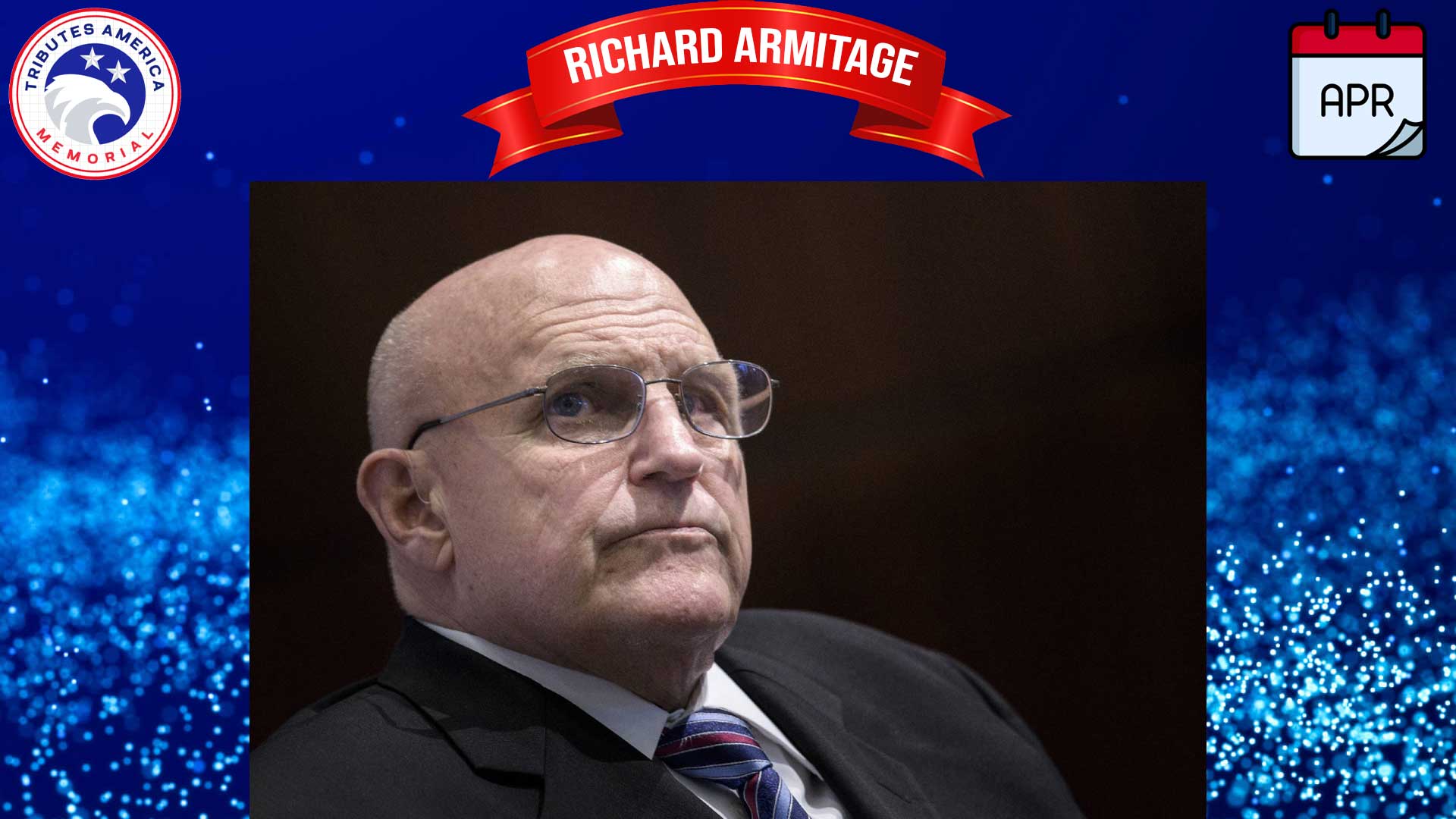




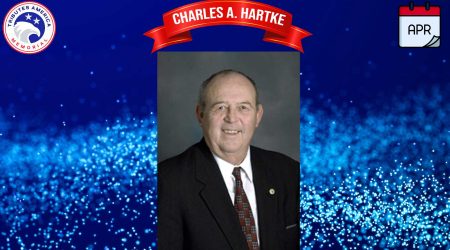
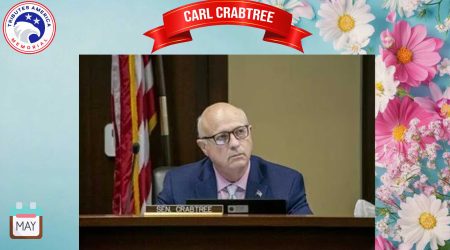
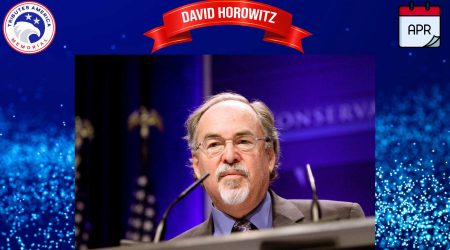

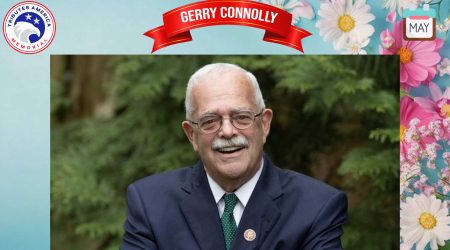

Leave a Reply